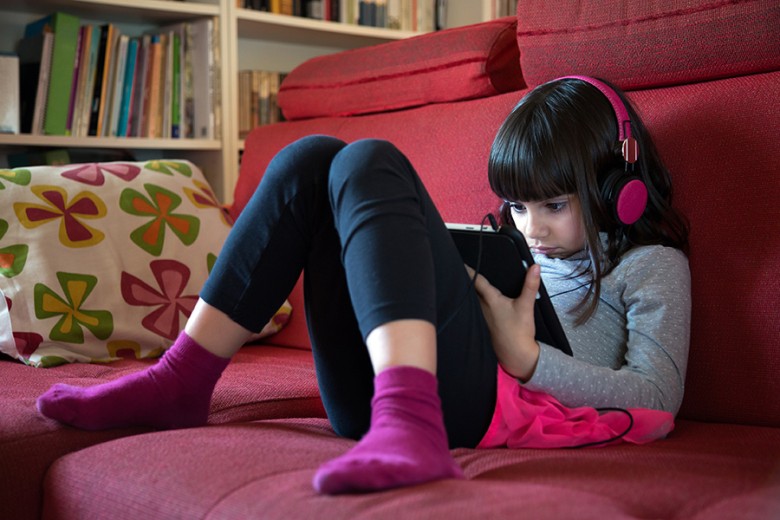Screens and Kid's Sleep Disturbances
6 Things You Can Do to Avoid the Problem

You may have read something about electronic devices causing sleep problems. To be exact, it is the blue light that emits from most electronic screens that is the culprit. Here’s the scoop.
Two Problems
First problem is that blue light coming from smartphones, tablets, computers, and TVs, disrupts the production of melatonin, a hormone naturally produced in the body to induce sleep.
Second problem is that blue light also disrupts your body’s natural circadian rhythm, which regulates the sleeping/waking cycle that occurs over a 24-hour period. Think of it as your daily body clock that tells your body when it’s time to sleep and when to stay awake.
Prior to artificial light, our bodies were naturally attuned to the rising and setting of the sun, and sleep cycles were set according to the presence or lack of light coming from the sun. We still have those sleep cycles which are called our circadian rhythms.
Sleep circadian rhythms begin in the evening and intensify mostly between 2AM and 4AM. When the cycle is disrupted by artificial light, and especially blue light, your body gets messages that it is not nighttime (or dark), and not time for sleep.
How does it affect your kids?
If your kids are sitting in front of the TV, looking at a tablet or gaming device, viewing a computer screen, or playing on a smartphone in the hours before bedtime, it is quite possible their natural sleep cycle will be interrupted. They may sleep poorly, have a difficult time going to sleep, have a difficult time staying asleep, and be tired in the morning.
Think of blue light as a stimulant. It increases alertness, as well as signals your body that it’s time to stay awake.
This is a real dilemma for parents as we live in an electronic world. I am usually on my computer or tablet in the later hours of the evening myself, and I go to bed with a Kindle.
Our kids are watching TV, playing computer games, and in some cases reading on electronic devices in the evening. Many right up until bedtime.
So what should you do? Here’s 6 things to consider:
- Take the TV out of the bedroom. There is really no reason for kids to be watching TV in their rooms, and especially not at night before bed. I know of parents who have unwittingly gotten their kids in the habit of going to sleep with the TV on. Bad idea! Not so great for adults either.
- Put as much time between electronic usage and bedtime. Make the later hours time you spend with your kids as opposed to everyone being glued to the device of their choice.
- Read real books. You can either do this by reading to your kids, or if they are reading on their own, get them real paper books to read in the evening. Some kids like to get in bed and read or look through a book before going to sleep. That’s fine. Kindles are wonderful, but if they are backlit, or you’re reading on a bright screen like an iPad, you will get blue light.
- TV? More difficult because often everyone in the family watches a favorite show in the evening. Keep it at a minimum if possible, and try other activities. One family I know plays board games or cards with the kids, and they love it!
- Limit electronic use period. We haven’t had enough time yet to research the effects of heavy texting, social media use, and extensive exposure to computer screens. I wouldn’t wait to find out the negatives.
- Use your judgment and encourage your kids to use imagination, creativity, and engage in real person-to-person interactions where they can’t create a false persona. Playing computer games and interacting on social media is fine, but should be limited and monitored.
What about you?
You have to model what you pass down to your kids, which means you need to put your own cellphones and tablets away when you want them to abstain from using their electronic devices.
How many of you get on your smartphone or tablet after dinner while the TV is on, and everyone else in the family also has their heads in their devices? This is becoming a common evening scenario.
Kids know when you are distracted, and even if they don’t complain out loud, they experience you as unavailable which can leave them feeling isolated and lonely.
Be present, especially in the evening when you have been separated for most of the day. It’s a time for connection, not isolation.
Now You
Join the conversation and let us know any strategies you’ve tried that work to reduce nighttime electronic device usage. I’m lovin’ the board games! Any other ideas?
